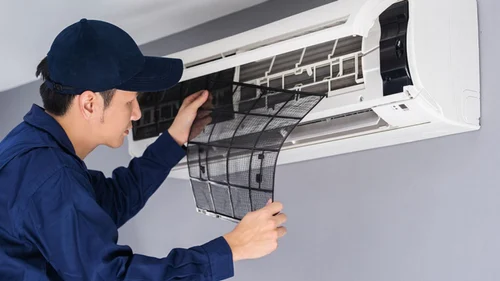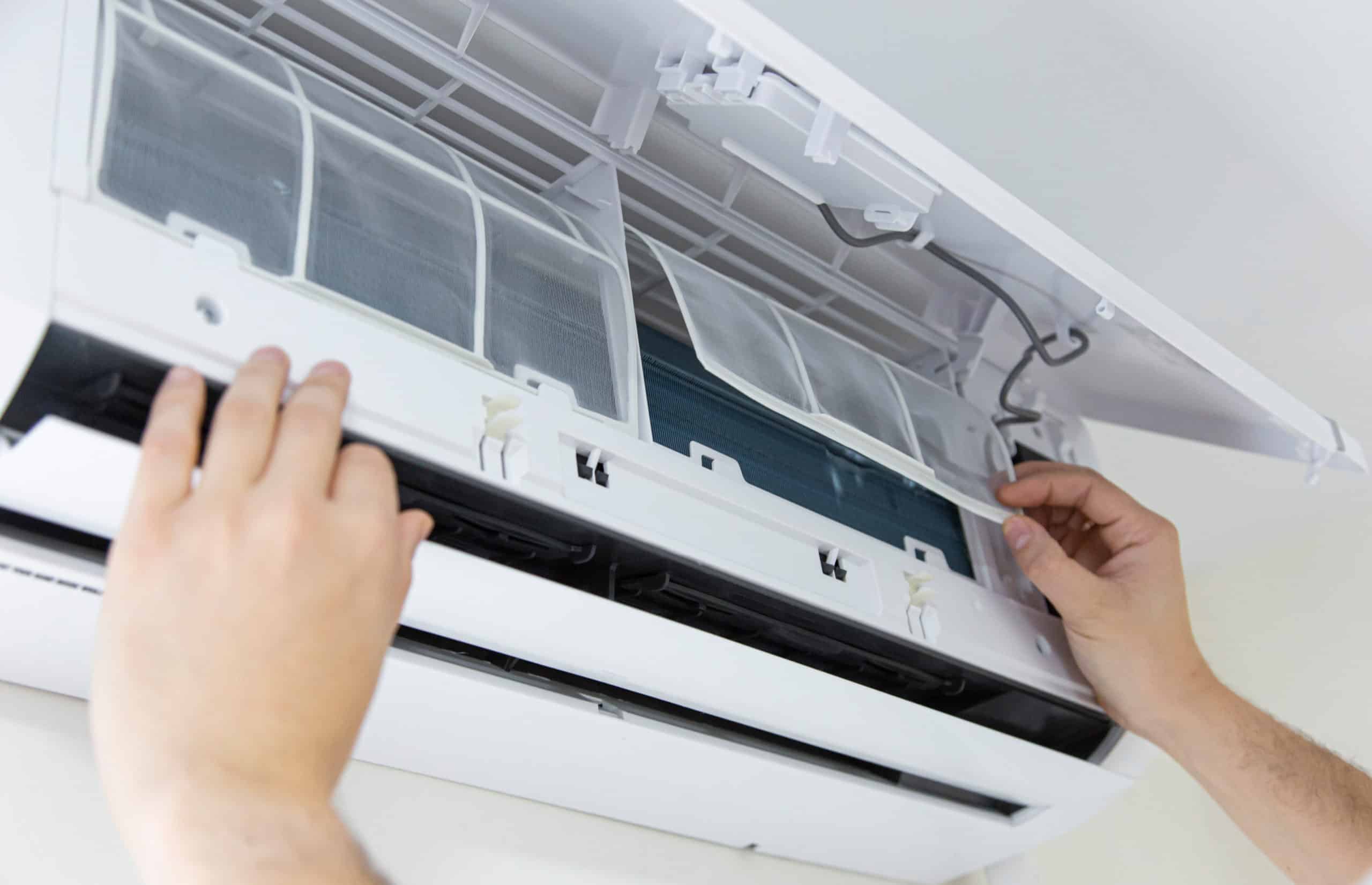Air Conditioner Repair Near Me for Beginners
Air Conditioner Repair Near Me for Beginners
Blog Article
Rumored Buzz on Air Conditioner Repair Near Me
Air Conditioner Repair Near Me: Professional Cooling System Repair Guarantees Your Home Remains Comfy Throughout The Year
Kinds Of A/c Systems
When dealing with a/c repair, understanding the kind of cooling system you're dealing with can save time, cash, and aggravation. Ever questioned why some units cool a space faster than others? Or why certain systems seem to break down more regularly? Let's peel back the layers.
Central Air Conditioning
Not known Details About Fix Air Conditioner
Envision a cool breeze flowing through an entire home, whispering convenience into every corner. Central air conditioning systems do exactly that. They utilize a network of ducts to distribute cooled air, counting on a compressor and condenser outside, coupled with an evaporator coil inside. When this complex monster falters, determining the concern can be like discovering a needle in a haystack.
Split Systems

Split systems are a popular choice for numerous homes-- part indoor system, part outdoor compressor. They offer versatility and effectiveness, however their double nature indicates repair can involve either element. Have you ever heard a strange noise outside your house just to find the indoor system isn't cooling? That's a classic sign of a split system glitch.
8 Simple Techniques For Air Conditioning Repair Near Me
Window Units
These compact warriors fight summer season heat by fitting comfortably into a window frame. They integrate all parts into a single box. Their simpleness typically means fewer repair headaches, but overlooking filters or permitting particles buildup can result in reduced performance or breakdowns.
Ductless Mini-Splits
Everything about Ac Repair
Ductless systems bypass ductwork totally, making them perfect for homes without existing ventilation. They're peaceful, efficient, and remarkably resilient. Yet, when repairs are required, specialists must be skilled at handling refrigerant lines and electrical connections-- no little feat.
Quick Recommendation Table
| Type | Secret Includes | Typical Repair Issues |
|---|---|---|
| Central air conditioning | Ductwork, whole-house cooling | Duct leakages, compressor failure |
| Split System | Indoor & & outside systems | Refrigerant leaks, fan motor problems |
| Window Unit | All-in-one, simple setup | Filthy filters, electrical faults |
| Ductless Mini-Split | No ducts, zoned cooling | Line leaks, sensor breakdowns |
The smart Trick of Ac Repair That Nobody is Talking About
Deciphering the A Lot Of Regular A/c Issues
Have you ever questioned why your air conditioning unit unexpectedly stops cooling during a sweltering afternoon? One typical perpetrator is an unclean or stopped up air filter. This tricky villain limits airflow, forcing your system to work overtime, which not only lowers effectiveness however can also cause early breakdowns. Envision attempting to breathe through a scarf soaked in dust-- it's exhausting!
Another regular misstep is refrigerant leaks. These unnoticeable leaks do not just decrease cooling power however can likewise damage the compressor, the heart of your air conditioning unit. How frequently do you look for unusual hissing noises or ice development on the coils? Capturing these indications early can conserve you from expensive repair work down the line.
Beyond the Fundamentals: Lesser-Known Issues
See This Report on Repair Air Conditioner Near Me
Often, the thermostat itself is the mischief-maker. Miscalibrated or defective thermostats send out blended signals, causing the air conditioner to cycle unpredictably. Ever experienced your air conditioner turning on and off in fast succession? That's called brief cycling, a sly efficiency drainer that can wear out components much faster than you 'd expect.
Electrical problems, such as worn wiring or a malfunctioning capacitor, may prowl beneath the surface. Air conditioning Repair Near Me. These typically manifest as air conditioner units stopping working to start or all of a sudden closing down. An expert eye knows to evaluate these elements with precision tools, something a casual glimpse won't reveal
Specialist Tips for Diagnosing Common Air Conditioner Issues
Not known Incorrect Statements About Air Conditioner Repair Near Me
- Check and change air filters regularly-- every 1 to 3 months depending upon use and environment.
- Listen for uncommon noises like rattling or buzzing that might indicate loose parts or electrical faults.
- Check the outdoor unit for debris or clogs that impede air flow and cause overheating.
- Look for frost accumulation on evaporator coils, a tip towards refrigerant issues or air flow constraints.
- Test the thermostat settings and recalibrate if the temperature readings feel off.
Quick Reference Table: Manifestation & & Probable Triggers

| Symptom | Probable Cause | Expert Suggestion |
|---|---|---|
| Warm air blowing | Low refrigerant or dirty coils | Tidy coils and look for leaks instantly |
| Brief biking | Thermostat concerns or large unit | Adjust thermostat settings and consult sizing standards |
| Unit will not start | Electrical faults or capacitor failure | Test electrical wiring and replace capacitors as needed |
| Water leakage | Obstructed drain line or frozen evaporator | Clear drain lines and examine for coil icing |
DO IT YOURSELF A/c Upkeep Tips
Fix Air Conditioner - An Overview
Ever seen your ac system sputtering like an old engine on a hot summertime day? Overlooking subtle signs typically means more than just a sweaty afternoon-- it's a start to unanticipated a/c repair work expenses. What if you could catch those whispers before they turn into wails? Routine DIY maintenance can be your first line of defense.
Basic Actions to Keep Your A/c Running Smoothly
The Of Ac Repair Near Me
- Clean or Change Filters: A stopped up filter resembles trying to breathe through a scarf. Every 1-3 months, examine and switch out your filters. It improves airflow and efficiency, avoiding compressor pressure.
- Examine the Condenser Coils: Dust and particles act as undetectable blankets smothering your system's cooling power. Gently brush or vacuum the coils, but prevent harsh chemicals that might erode the metal.
- Check the Drain Line: When was the last time you glanced at your drain pan? A clogged up drain can trigger water leaks and foster mold development. Flushing it with a vinegar solution monthly keeps the flow clear.
- Seal and Insulate: Are your ductworks whispering leakages? Sealing gaps with mastic or foil tape increases effectiveness and cuts down on irregular cooling.
Pro Tips Beyond the Fundamentals
- Procedure your unit's voltage to capture subtle electrical wear before it stimulates big issues.
- Listen for uncommon hums or rattles-- these acoustic breadcrumbs often signify loose parts or failing motors.
- Keep outdoor systems shaded however ensure at least 2 feet of clearance around them for optimal air flow.
Ask yourself: Are you hearing your air conditioner's quiet SOS or just awaiting it to scream? Requiring time for DIY air conditioning upkeep changes reactive repair work into proactive care, conserving sweat, tension, and yes, cash.
The 9-Minute Rule for Repair Air Conditioner Near Me
Why Expertise in AC Repair Work Matters
Picture this: your a/c system sputters and groans during a scorching afternoon, leaving you sweltering inside. Would you rely on an amateur fumbling with delicate elements, or would you look for the peace of mind of a expert air conditioner service technician!.?.!? The intricacies of modern-day air conditioning systems require precision and experience. A slight miscalculation can escalate a minor malfunction into a pricey catastrophe.
Some Known Factual Statements About Fix Air Conditioner
Unseen Intricacies Behind the Cool Breeze
Many underestimate the layers hidden below the smooth outside of an AC unit - Fix Air Conditioner. From refrigerant leakages that calmly drain effectiveness to malfunctioning thermostats that misread temperatures, these problems need more than a basic toolkit. Professionals possess a keen eye for identifying issues that average property owners ignore
Vital Tips for Selecting the Right Technician
The Best Guide To Repair Air Conditioner Near Me
- Accreditation and Training: Validate qualifications; a technician trained in the latest heating and cooling technologies is indispensable.
- Experience with Specific Systems: Not all a/c systems are developed equal; discover somebody knowledgeable about your model's quirks.
- Diagnostic Approach: Proficient technicians utilize sophisticated tools-- like electronic leakage detectors and thermal imaging-- to pinpoint covert faults.
What to Expect from a Pro's Diagnostic Process
| Step | Function | Professional Insight |
|---|---|---|
| Visual Inspection | Identify apparent wear or damage | Try to find corrosion or unusual sounds-- an indication often overlooked |
| Pressure Testing | Find refrigerant leakages | Subtle pressure drops can hint at micro leakages unnoticeable to the naked eye |
| Electrical Checking | Guarantee circuit integrity | Loose connections can imitate severe mechanical failures |
Our Air Conditioning Repair PDFs
Why DIY Typically Falls Short
Appealing as it is to play with your air conditioning system, do it yourself fixes frequently miss the source. Topping off refrigerant may momentarily cool your space however neglects leaks that worsen over time. Professional technicians do not simply spot get more info signs; they hunt down the underlying mechanical and electrical faults that sap efficiency.
Fix Air Conditioner Things To Know Before You Get This
Questions to Ask Before Working with
- What diagnostic tools do you use to identify concerns?
- Can you discuss the repair procedure and expected results?
- Are you acquainted with the refrigerants compatible with my system?
- Do you follow security procedures for handling electrical components?